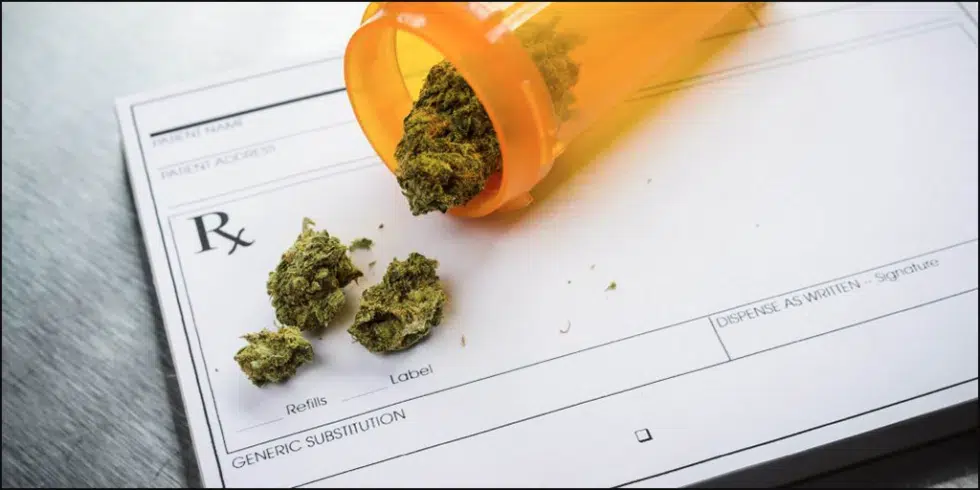
The nation’s opioid crisis is still in full effect, and many doctors are looking to explore non-opioid options for chronic pain management. As of August 2, 2019, Colorado doctors have been granted a new possibility. With the enactment of SB 19-013, doctors in the state can now recommend medical marijuana in place of opioid painkillers.
The decision does have its opponents, and some point to a lack of marijuana research to show the bill’s passing may have been premature. Some Colorado doctors also have concerns with the decision, saying that marijuana may be helpful but does not provide the same pain-relieving effects as other options.
Treating the Source of the Pain
Summit Daily, a Colorado news outlet, asked medical professionals about their opinion on the new law. Dr. Brian Siegel believes opioids are helpful for acute pain management, but not for chronic pain that may follow. His goal is to prevent chronic pain from happening in the first place, and he believes switching to marijuana is ignoring the true causes behind why it happens.
“Some of these people are prewired to transform their anxiety and depression into a chronic pain syndrome,” Siegel says. Mental health disorders often co-occur with substance use disorders. Essentially, some people are more predisposed to addiction than others. In addition, many opioid use disorders begin when patients are prescribed opioids for acute pain.
This Season, Give Yourself the Gift of a Fresh Start.
Whether you are struggling with addiction, mental health or both, our expert team is here to guide you every step of the way. Don’t wait— reach out today to take the first step toward taking control of your life.
While Dr. Siegel believes alternatives to long-term opioid use are needed, he doesn’t seem to think an alternative is found in marijuana. Instead, he chooses to focus on behavioral health to treat chronic pain and underlying psychological issues.
Medical Marijuana vs. Opioids
Opioids are very effective for pain relief, but the drug is highly addictive. Further, stopping use can lead to sometimes deadly withdrawal symptoms, and taking too much can cause an overdose. In the U.S. in 2017, opioids were involved in 47,600 overdose deaths, which made up 67.8% of all overdose deaths.
In contrast, marijuana is less addictive and much less dangerous. However, people can still become addicted to the drug or develop psychological dependence. Marijuana does work for some symptoms involving pain, but it is not as effective as opioids. Studies show that medical marijuana use can be useful in helping conditions such as Parkinson’s disease, Alzheimer’s disease, schizophrenia and other health disorders.
Lack of Research & Evidence
Dr. Siegel does not prescribe medical marijuana. “There have been no good studies,” he says. Though opioids may be more dangerous and addictive, much more is known about how they should be used and the effects they have in short- and long-term situations.
People like Nancy Beste, executive director of Road to Recovery, have looked to evidence to support their stance on medical marijuana. One study found that marijuana use can increase the risk of psychosis. Though Beste incorporated medication-assisted treatment into her recovery programs, she still has concerns with the use of marijuana as an alternative.
“I feel like people jump from one substance to another often when struggling with substance use disorder,” she says. “I want people to learn to be healthy and happy without any chemicals, if possible.”
Other studies have found that marijuana use may actually increase opioid use disorders. In addition, there have been no widely available studies on marijuana as a common pain reliever.
Preventing Widespread Addiction
Both opioids and marijuana can lead to negative side effects such as dependence and addiction. There are risks involved when taking any kind of medication, and it is important to understand the consequences of misuse.
Substance use disorders are often caused by underlying mental health issues such as anxiety or depression. By treating these conditions, people may be less likely to self-medicate with drugs and develop substance use disorders. Pain can also stem from traumatic events like experiencing abuse or trauma earlier in life. Dr. Siegel seeks to treat these and offer people alternatives to opioids for pain management such as acupuncture, heat treatment and therapy.
Recognizing the Signs of Addiction
Drug misuse can easily turn into addiction. Some signs of drug addiction include:
- Needing more of a drug to experience the same effects
- Withdrawal symptoms
- Inability to stop using drugs despite negative consequences
- Constantly thinking about drugs
- Losing interest in hobbies or enjoyable activities
- Relationship issues with family, friends and coworkers
- New groups of friends
If you or a loved one is suffering from a substance use disorder or co-occurring mental health issue, The Recovery Village at Palmer Lake can help. Contact us today to learn more about treatment options that can work well for your situation and needs.







